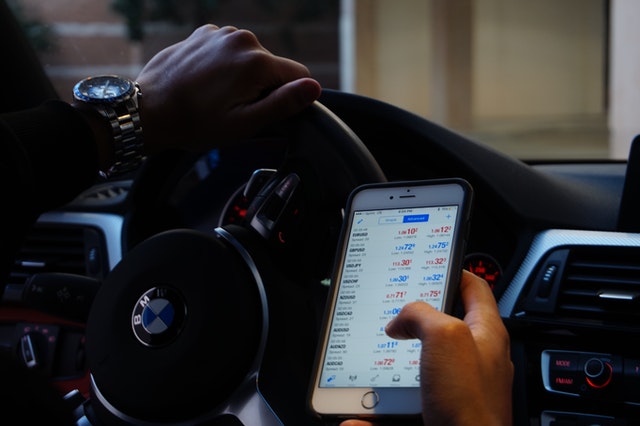Forex is not a scam. However, it has grown and gained popularity over the years. And remember cons. Scammers often choose the most popular trading sites to scam you. These people pose as forex trading executives and rob you of your money in various ways.
What is Forex?
Foreign exchange, also known as Forex or Fx for short, is exchanging one currency for another for many reasons such as trading, tourism, etc. These currencies are traded against each other in pairs—for example, US and UK or US and EURO, etc.
Risks in Forex Trading
- Leverage: Leverage in forex trading necessitates a small initial investment, known as a margin, to gain access to large trades in foreign currencies. Margin calls, in which the investor must pay an additional margin, can result from minor price fluctuations. Aggressive use of leverage in volatile market conditions can result in significant losses that exceed the initial investment.
- Interest Rate: First and foremost thing to know is that the interest rates impact the country’s exchange rates. Interest rates affect the country’s exchange rate. When a country’s interest rates go up, its currency strengthens due to an upsurge of investments in its assets, apparently because more robust money provides more significant returns. If interest rates fall, its currency will deteriorate as investors withdraw their investments. Due to the nature of interest rates and the impact on exchange rates, differences in currency values can cause exchange rates to fluctuate dramatically.
- Transaction: The transaction risks are nothing but exchange risks associated with the time difference between the beginning of a contract and the time it settles. Forex trading occurs on a 24/7 basis, which can cause exchange rates to fluctuate before trades are settled. As a result, different currencies may trade at different prices during trading hours. The longer the time lag between entering and agreeing on a contract, the higher the transactional risk. Since time differences cause exchange risks to rise or fall, individuals and businesses dealing in currencies face increased transaction fees, possibly arduous.
- Counterparty: The Company that provides the asset to the investor is the counterparty in a financial transaction. Thus, counterparty risk refers to the possibility of a particular transaction’s dealer or broker defaulting. An exchange or clearinghouse does not guarantee a spot and forwards currency contracts in forex trades. Counterparty risk in spot currency transactions is due to the solvency of market makers. As a result, the counterparty may be unable or unwilling to honor contracts during volatile markets.
- Country: When considering investment opportunities in currencies, the structure and stability of each country must be taken into account. Many emerging and third-world countries fix their exchange rates to a global leader, such as the US dollar. In this case, central banks must maintain adequate reserves to sustain a fixed exchange rate. As a result, currency crises can occur due to frequent balance-of-payment deficits, resulting in currency depreciation. This can have a significant impact on forex trading and prices.
- One’s own error: Even if a trader’s medium to long-term market view is sound, he may be forced to accept short-term unrealized losses and close out a losing position. This occurs when a trader is unable to achieve their stated goal or withstand significant losses. Traders with insufficient capital may experience losses even if their market analysis is correct, and a currency position would inevitably turn around and become lucrative if held.
Tips for avoiding Forex Scams
Forex Scams
The forex scam is nothing but fraudsters trying to deceive and entice people to invest in their fraudulent company like any other scam. They make claims of high returns, massive profits, and other such nonsense. And once they’ve received the dedicated sum, they’ll flee, leaving you with nothing.
How to avoid Forex Scams
Avoiding scams can look like a challenging task. Sometimes, it’s hard to differentiate between a legitimate trading site and a scammed one. So, while it is good to know that you are avoiding forex scams, it is also wise to know about forex scams recovery companies that will help you get your money back. These firms assist in the recovery of funds by undertaking preliminary assessments. Gathering proof and addressing corrupt practitioners are the next steps. These companies put an awful lot of effort into recovering money from scammers for the victims.
Following are some steps that can help you in avoiding forex scams:
- Regulated Broker: It is essential to know if the broker is regulated because scammers usually do not have a website in the first place. Even if they do, it’s a copied one with minute changes here and there. While you are at it, check for the broker on the Securities and Futures Commission (SFC).
- Regulatory Bodies: Few scam brokers tell you they are regulated and are registered by the governing body. But you have to make sure they are registered and regulated. Some regulated bodies are – the Financial Conduct Authority (FCA), Securities and Futures Commission (SFC), etc. Depending on where the scammer tells you he is from and where you are located, you can check for them on the websites.
- Offering profits and high returns: Some brokers promise you 70% – 80% of returns or say that they have a predominantly 90% success rate and that once you invest with our app, you will yield high profits. Do not believe any such scams because that is what they are. Scams!
- Cash offers: Some scammers will make offers such as cash if you open an account with them. Do not believe in such payments and do not accept them because if you do, you will be giving them your private information for them to deposit the money in your account, and the next thing you know, they will have absconded with your money.
- Website: Make sure you check the website for company history, its headquarters, and its turnover, and such as these can be your way of knowing their regulation.









